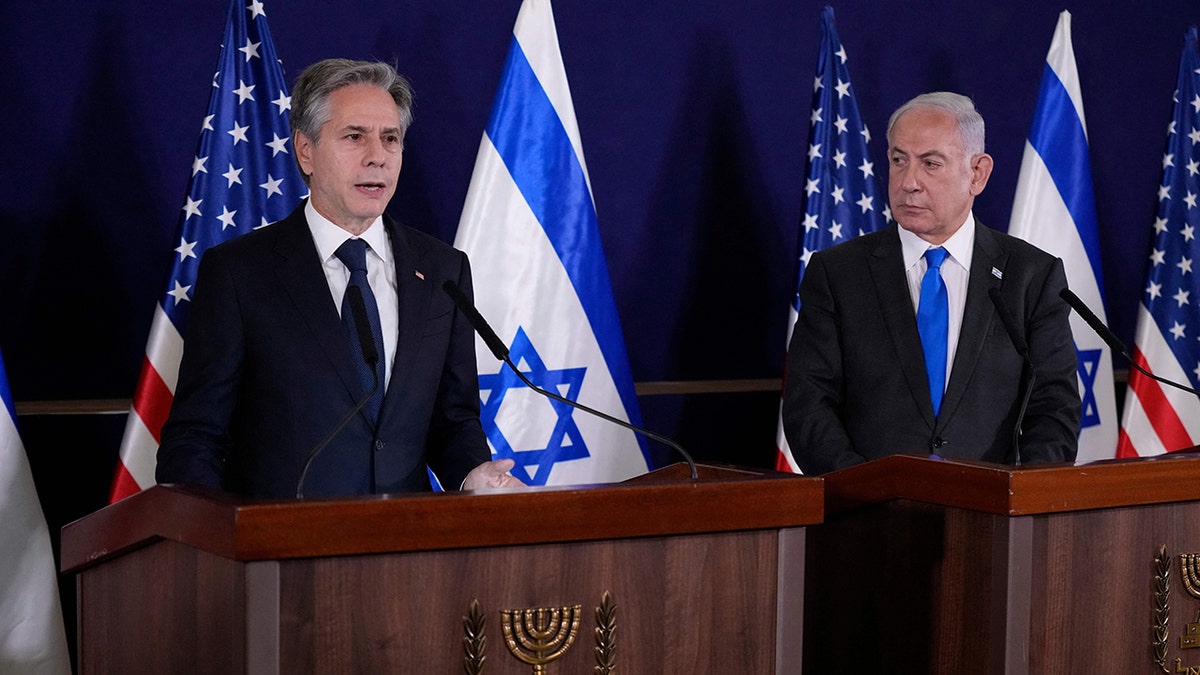Blinken heads back to the Middle East amid attacks in the Red Sea, Lebanon, Iran and Iraq
Secretary of State Antony Blinken is heading back to the Middle East as the Biden administration continues to grapple with a region that has become increasingly tense and unstable since the outbreak of the Israel-Hamas war.
Blinken’s visit to the region will be his fourth in three months and comes amid attacks in the Red Sea, Lebanon, Iran and Iraq, threatening a wider conflict as well as impacting commercial vessels and international trading routes.
The State Department said Blinken, who left Thursday, will visit Turkey, Greece, Jordan, Qatar, the United Arab Emirates, Saudi Arabia, Israel, the West Bank and Egypt.
“We don’t expect every conversation on this trip to be easy,” State Department spokesman Matthew Miller said. “There are obviously tough issues facing the region and difficult choices ahead. But the secretary believes it is the responsibility of the United States of America to lead diplomatic efforts to tackle those challenges head on, and he’s prepared to do that in the days to come.”
STATE DEPARTMENT QUIET ON SLAIN HAMAS LEADER WITH $5 MILLION BOUNTY: WANTS TO PREVENT ‘WIDENING’ CONFLICT
Blinken leaves as international criticism continues to mount on Israel’s operations in Gaza, and as U.S. lawmakers on both sides of the political aisle have expressed concerns to President Biden about the end game.
His trip also comes just days after a suspected Israeli attack killed Hamas deputy leader Saleh Arouri in the Lebanese capital of Beirut. While the White House said “nobody should be shedding a tear” over the death, it could further complicate Blinken’s mission.
BIDEN TAKES GROWING HEAT FROM DEMOCRAT ALLIES, FAR-LEFT ‘SQUAD’ ON ISRAEL DECISION
Blinken will bring Gaza-specific priorities to Israel, which will include pressing for additional humanitarian aid to Gaza, urging less intense military operations in the territory and reducing violence against Palestinians in the West Bank.

The State Department said he will be seeking regional assistance in calming the wider region too.
“It is in no one’s interest, not Israel’s, not the region’s, not the world’s, for this conflict to spread beyond Gaza,” Miller said.

The key elements to preventing a wider conflict include deterring attacks by Yemen’s Iran-backed Houthi rebels on commercial Red Sea shipping, deterring attacks on Israel by Lebanon’s Iran-backed Hezbollah and deterring attacks on U.S. military facilities and interests by Iran-backed militias in Iraq and Syria.
There have now been at least 121 attacks on U.S. forces in Iraq and Syria since Oct. 17, including three attacks in the last 48 hours, according to a U.S. defense official.
Fox News’ Liz Friden and The Associated Press contributed to this report.
Read the full article Here


